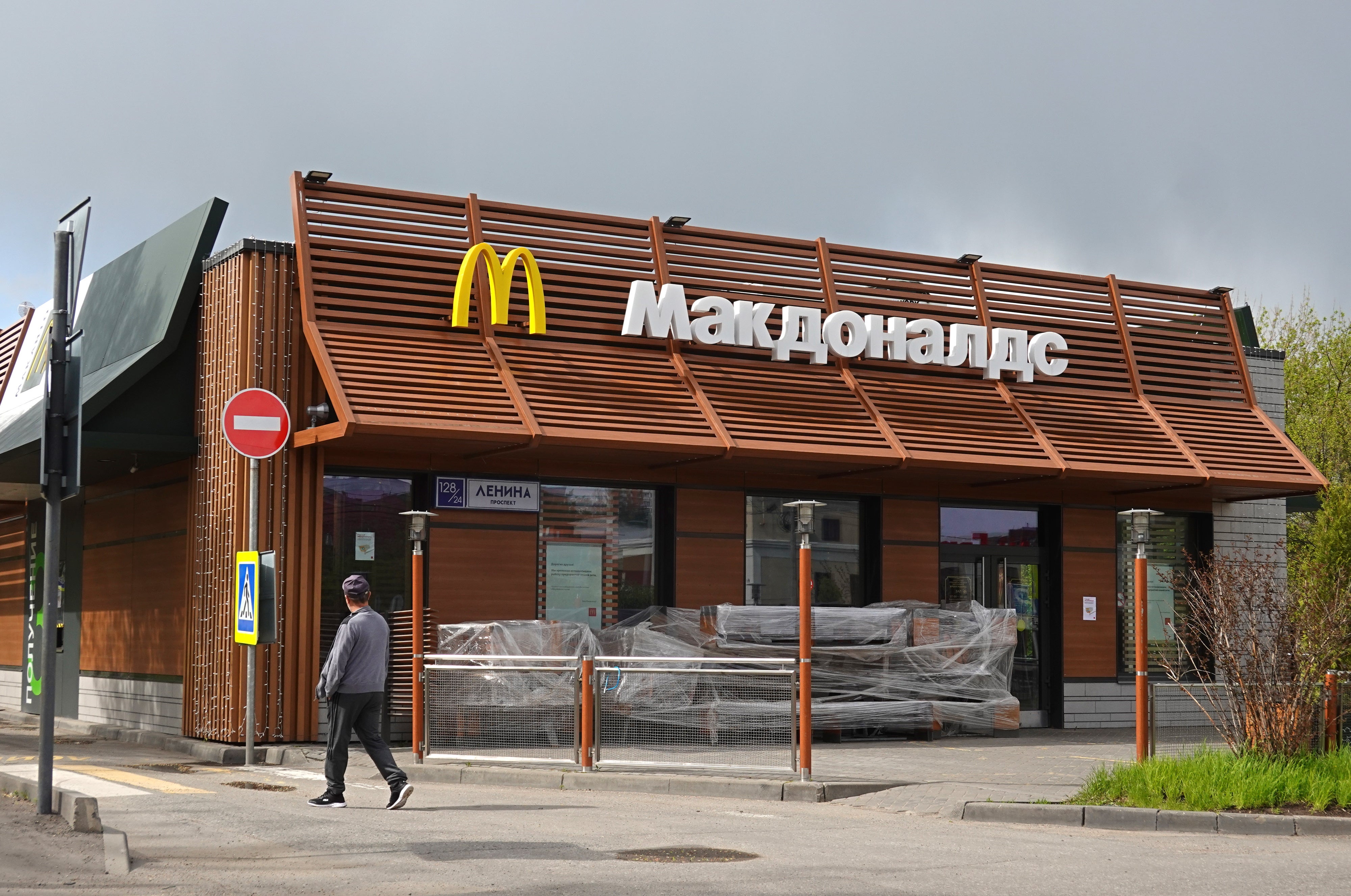Have EU sanctions hurt Russia since it invaded Ukraine? Here’s the truth
We have begun to show that, when provoked, Europe can respond powerfully


Your support helps us to tell the story
From reproductive rights to climate change to Big Tech, The Independent is on the ground when the story is developing. Whether it's investigating the financials of Elon Musk's pro-Trump PAC or producing our latest documentary, 'The A Word', which shines a light on the American women fighting for reproductive rights, we know how important it is to parse out the facts from the messaging.
At such a critical moment in US history, we need reporters on the ground. Your donation allows us to keep sending journalists to speak to both sides of the story.
The Independent is trusted by Americans across the entire political spectrum. And unlike many other quality news outlets, we choose not to lock Americans out of our reporting and analysis with paywalls. We believe quality journalism should be available to everyone, paid for by those who can afford it.
Your support makes all the difference.Are the sanctions against Russia useful? Yes, they are already hitting Vladimir Putin and his accomplices hard, and their effects on the Russian economy will increase over time.
Since Russia deliberately violated international law by invading Ukraine, the EU has adopted six packages of sanctions against Moscow. Our measures now target nearly 1,200 individuals and 98 entities in Russia as well as a significant number of sectors of the Russian economy.
Some may ask, do these sanctions really have an impact on the Russian economy? The simple answer is yes. Although Russia exports a lot of raw materials, it also has no choice but to import many high value-added products that it does not manufacture. For all advanced technologies, it is 45 per cent dependent on Europe and 21 per cent on the United States, compared with only 11 per cent on China.
In the military field, the sanctions limit Russia’s capacity to produce precision missiles such as the Iskander or the KH 101. Almost all foreign car manufacturers have also decided to withdraw from Russia and the few cars produced by Russian manufacturers will be sold without airbags or automatic transmission.
Its oil industry is suffering not only from the departure of foreign operators but also from the difficulty of accessing advanced technologies such as horizontal drilling. The ability of Russian industry to bring new wells on stream is likely to be limited. Finally, in order to maintain air traffic, Russia will have to withdraw a majority of its aircraft from circulation in order to recover the spare parts needed to allow the others to fly. Added to this there is also the loss of access to financial markets, being disconnected from major global research networks and a massive brain drain.
By the end of 2022, we will have reduced our Russian oil imports by 90 per cent and we are rapidly reducing our gas imports. These decisions are gradually freeing us from a dependence that has long inhibited our political choices in the face of Vladimir Putin’s aggressiveness.
Of course, weaning ourselves off Russian energy so rapidly also creates serious difficulties for people and industries. But this is the price we have to pay for defending our democracies and international law, and we are taking the necessary steps to deal with these problems in full solidarity.
As for the alternative offered by China for the Russian economy, in reality it remains limited, especially for high-tech products. To date, the Chinese government, which is very dependent on its exports to developed countries, has not assisted Russia in circumventing Western sanctions. Chinese exports to Russia have fallen in line with those of Western countries.
Will these significant and growing impacts lead Vladimir Putin to modify his strategic calculations? Probably not in the immediate future: his actions are not guided primarily by economic logic. However, by forcing him to choose either butter or guns, the sanctions lock him in a vice that is gradually tightening.
These sanctions do not in any shape or form target Russian wheat or fertiliser exports, while Ukraine is prevented from exporting its wheat by the Black Sea blockade and destruction caused by Russian aggression. So it’s clear that the responsibility for the cost-of-food crisis lies with Russia, not the EU or these sanctions.
To keep up to speed with all the latest opinions and comment, sign up to our free weekly Voices Dispatches newsletter by clicking here
The real answer to the difficulties on the world energy and food markets is an end to the war. This cannot be achieved by accepting the Russian diktat, it can only be achieved by Russia’s withdrawal from Ukraine. Respect for the territorial integrity of states and the non-use of force are the basis of all international law. Russia is blithely trampling on them. To accept such a violation would open the door to the law of the jungle on a global scale.
Contrary to what we thought rather naively just a few years ago, economic interdependence does not automatically imply a pacification of international relations. This is why the transition to a Europe as a power, which I have been calling for since the beginning of my mandate, is imperative.
Faced with the invasion of Ukraine, we have begun to move from intention to action by showing that, when provoked, Europe can respond. Since we do not want to go to war with Russia, economic sanctions are now at the core of this response. They are already beginning to have an effect and will do so even more in the coming months.
Josep Borrell Fontelles is the European Commission’s vice-president, in charge of coordinating the external action of the European Union
Join our commenting forum
Join thought-provoking conversations, follow other Independent readers and see their replies
Comments